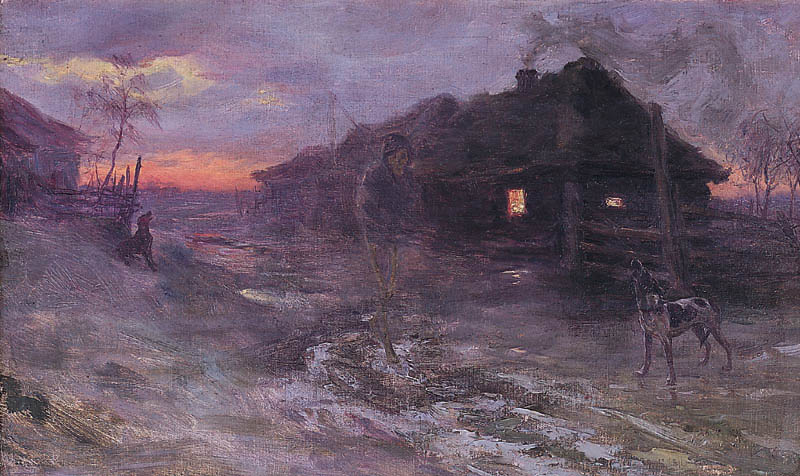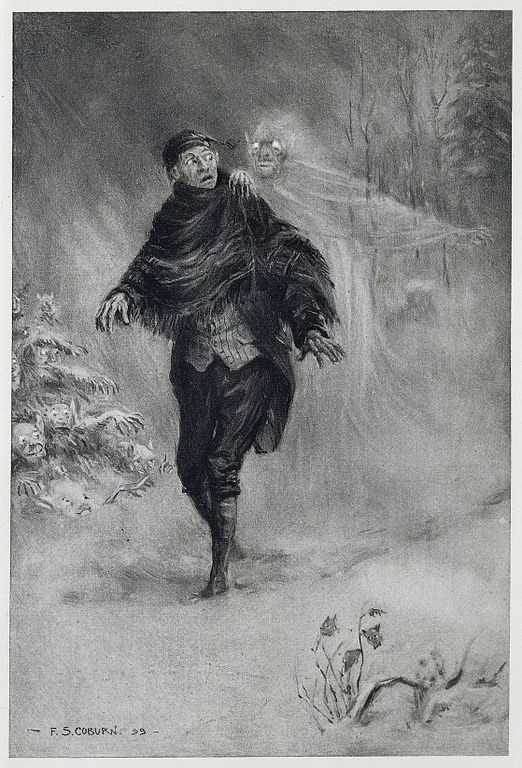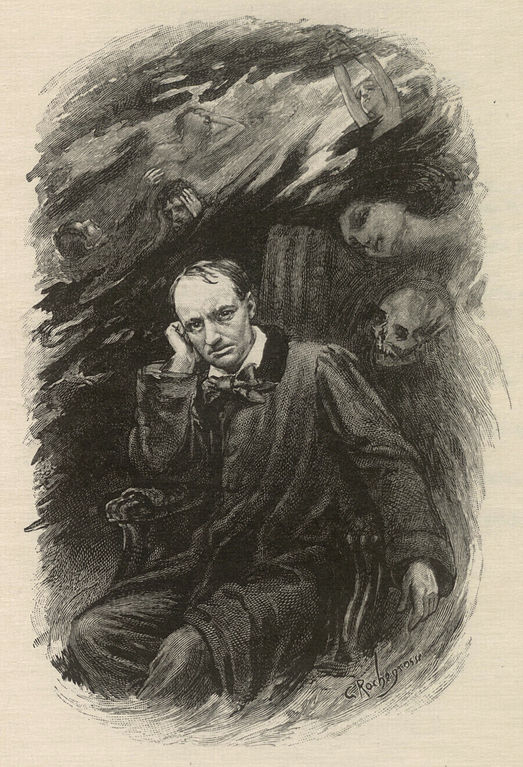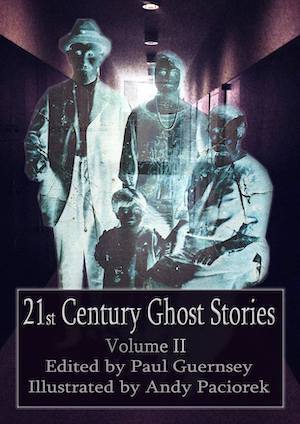by Editor
on December 5, 2014

Hounds Howl At A Ghost. Illustration: Henryk Weyssenhoff 1893
People Who Sense Ghosts Don’t Always See Them
Although most people who have had a paranormal experience report visual contact with one or more disembodied spirits, a significant minority say they sensed a ghost with faculties other than their eyes.
Out of 1,800 people who told British researchers they had encountered ghosts, 84 percent said they had seen the ghost or ghosts. However, 34 percent said they had heard a ghost speak or make some other sound—and of these, only 14 percent said they’d seen it at the same time. [continue reading…]
by Editor
on December 4, 2014

Illustration For Washington Irving’s The Legend Of Sleepy Hollow. Artist: Frederick Simpson Coburn (1871-1960.)
Can A Ghost Touch You—And What Does If Feel Like?
Are ghosts able, as in the illustration above, to put a hand on your shoulder and make you feel their icy grip? Or maybe we’re assuming too much, and their grip really isn’t so icy. . . .
Researchers Cecilia Green and Charles McCreery report in their scholarly book, Apparitions, that of 1,800 people surveyed concerning their paranormal experiences, 15 percent said that a ghost had touched them. And while in some of these cases interviewees claimed an apparition had placed cold hands on them, others told investigators that the touch had been warm and comforting. A number said a ghost’s clothes had brushed against them, and that they felt like ordinary clothing. [continue reading…]
by Editor
on December 3, 2014

A Portrait Of The Poet, Charles Baudelaire (1821-1867) Surrounded By Ghosts. 1917 Illustration By Georges Rochegrosse
Can A Ghost Talk? And If So, What Do They Say?
In their book, Apparitions, Celia Green and Charles McCreery conclude that it is rare for a ghost to say anything during a manifestation. Of the 1,800 people who in two British surveys reported that they had experienced a ghost, only 14 percent claimed to have heard it talk as well as seen it. Another 14 percent said they had heard a ghost make some sort of sound—though not usually speech—without actually seeing the ghost. (In only 36 percent of the cases in which ghosts were heard but not seen did they actually speak.)
Rarer still is it for a ghost to speak at length.
Nonetheless, some respondents told researchers that they had held lengthy conversations with ghosts. A handful even said they had talked at length with a ghost while not even realizing it was a ghost until later learning that the person they’d spoken to had died days or weeks before the conversation took place. [continue reading…]
by Editor
on December 2, 2014

People Hardly Ever See A Naked Ghost. Illustration: Karl Wilhelm Diefenbach (1851-1913).
What’s The Reason Ghosts Come Clothed?
On first thought, it seems to make little sense for ghosts to wear clothes. After all, one advantage of being disembodied is that you wouldn’t have the physical needs of finding food to keep from going hungry, or wearing clothes to stay warm and otherwise protected from the elements. Then there’s the metaphysical conundrum of the ghostly clothing itself. Where would it come from? Are the garments ghosts in their own right, as well?
In his book, The Haunted: A Social History of Ghosts, author and academic Owen Davies gathers several centuries of debate on this interesting issue. He quotes 19th century writer and hauntings expert Catherine Crowe as pointing out that there are other reasons for clothing aside from warmth and sex appeal. She adds that if ghosts are able to recreate the images of their living selves in order to appear before their survivors, there is no reason they couldn’t also recreate their clothing: If a spirit could “conceive of its former body it can equally conceive of its former habiliments, and so represent them, by the power of will to the eye, or present them to the constructive imagination of the seer.” [continue reading…]





